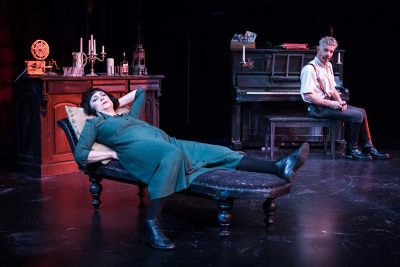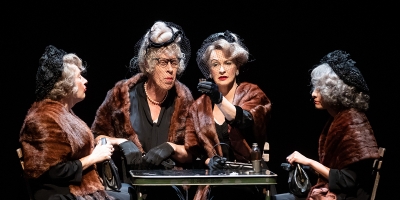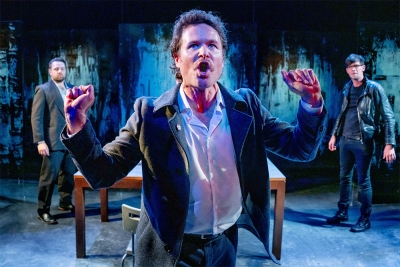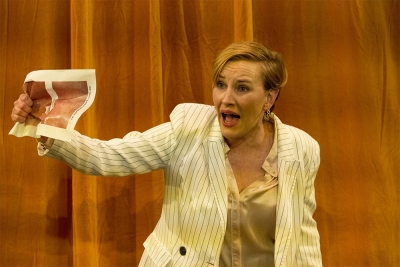Theatre
After staggering out of a performance of The Dance of Death, August Strindberg’s turbulent portrayal of a marriage, one fervently hopes Tolstoy was right and that each unhappy family is unhappy in its own way. No other theatrical couple – not Edward Albee’s George and Martha, not Eugene O’Neill’s James and ...
... (read more)This reviewer has the unfashionable opinion, at present, that Patrick White, like Henry James, was a novelist and short story writer of genius who had an unfortunate obsession with the stage. In the 1960s, the nascent Adelaide Festival produced the one play of his that deserves repetition, The Season at Sarsaparilla (1962) ...
... (read more)Krapp’s Last Tape was first performed in 1958, which places it towards the end of Samuel Beckett’s middle period: those fruitful postwar years during which he wrote his major plays, Waiting for Godot (1952) and Endgame (1957), and the three extraordinary novels known collectively as the ‘Molloy Trilogy’ (1951–58) ...
... (read more)Anyone who saw Neil Armfield’s production of David Hare’s Stuff Happens at the Seymour Centre back in 2005 would surely look forward to a new collaboration between the director and author with keen anticipation. Stuff Happens was largely verbatim theatre, with actors speaking the words ...
... (read more)In the middle of Adolf Hitler’s speech to the assembled faithful on the final evening of the 1934 Nuremberg Rally which is the culmination of Leni Riefenstahl’s film Triumph of the Will, the führer conjures up a particularly heartfelt bellow from the gathering. For a moment he looks down at the podium ...
... (read more)Australian musical theatre has had a long if chequered history going back to the popular, localised melodramas and pantomimes of the nineteenth century. In the more recent past, we think of successes such as Priscilla Queen of the Desert (1994) and The Boy from Oz (2003) ...
... (read more)Local interest in Scandinavian film and theatre seems to be rising, helped perhaps by the popularity of recent Scandinavian television noir. In the past two years, Belvoir Street Theatre has produced Henrik Ibsen’s Ghosts (1882) and An Enemy of the People (1883) ...
... (read more)Nearer the Gods, the new play from David Williamson, has been described as ‘a big departure’ from his wonted repertoire of Australian middle-class studies. It departs from contemporary Australia for seventeenth-century England in exploring the events that lead to the publication of Isaac Newton’s ...
... (read more)It’s rare to see a new Australian play remounted after its début season, but Prize Fighter, currently playing at Melbourne Festival after seasons at La Boite, Belvoir, and a regional tour, is a welcome exception. It is a transformative experience that exemplifies the social significance of live theatre ...
... (read more)Henrik Ibsen’s An Enemy of the People is both one of his most approachable and most challenging plays. The plot is universal: an individual attempts to force his community to face an uncomfortable truth and is pilloried by his neighbours. The play can be and indeed has been set in whichever country it is ...
... (read more)










